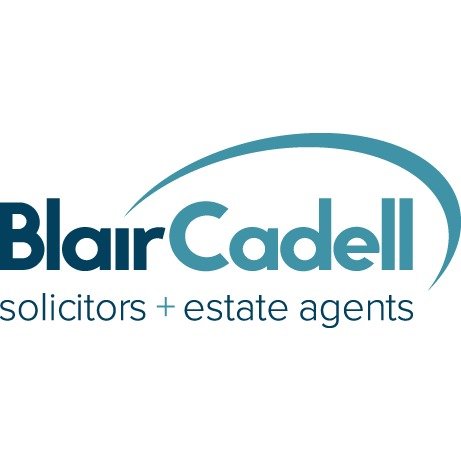Best Funds & Asset Management Lawyers in United Kingdom
Share your needs with us, get contacted by law firms.
Free. Takes 2 min.
Or refine your search by selecting a city:
List of the best lawyers in United Kingdom
About Funds & Asset Management Law in United Kingdom
Funds and asset management law in the United Kingdom refers to the legal framework governing the creation, operation, and supervision of investment funds and the management of assets on behalf of clients. This area of law plays a central role in the UK financial services sector, supporting a wide range of investment vehicles, including collective investment schemes, hedge funds, private equity, and real estate funds. Firms involved in funds and asset management must comply with strict regulatory standards designed to protect investors and maintain confidence in the financial markets. The Financial Conduct Authority (FCA) is the primary regulator for this sector in the UK, overseeing matters such as authorization, conduct of business, disclosure requirements, risk management, and client safeguarding.
Why You May Need a Lawyer
Legal guidance in funds and asset management can be essential for a variety of reasons. Common situations where hiring a lawyer is advisable include:
- Setting up a new investment fund or asset management firm and navigating the complex, evolving regulatory requirements.
- Drafting, reviewing, or negotiating fund documentation and management agreements to ensure compliance and protect interests.
- Dealing with cross-border investment activities that introduce different or conflicting legal obligations.
- Managing responses to regulatory investigations or enforcement actions by bodies such as the FCA.
- Advising on duties and liabilities of fund managers and directors, as well as addressing disputes with investors or stakeholders.
- Staying updated with legislative changes post-Brexit that may affect fund structure and operations.
Overall, a lawyer can help clients minimize risks, identify opportunities within legal boundaries, and resolve issues proactively.
Local Laws Overview
The UK has a sophisticated legal and regulatory system for funds and asset management, largely overseen by the FCA. Key aspects include:
- Authorization and Regulation: Investment managers and funds must usually be authorized by the FCA and are required to comply with ongoing conduct, solvency, and disclosure obligations.
- Fund Structures: Common structures include open-ended investment companies (OEICs), unit trusts, limited partnerships, and investment trusts, each with specific legal and tax considerations.
- Investor Protection: Laws require clear disclosure of risks, fees, and terms to prospective investors, as well as segregation and safeguarding of client assets.
- Anti-Money Laundering (AML): Firms must implement measures to prevent and detect money laundering and financial crime.
- Fiduciary Duties: Fund managers are held to high standards, including acting in the best interests of investors and avoiding conflicts of interest.
- Post-Brexit Considerations: Some EU legislation no longer directly applies, but the UK retains a regime similar to the prior EU framework, including provisions from AIFMD and UCITS directives.
Frequently Asked Questions
What is the role of the Financial Conduct Authority in UK funds and asset management?
The Financial Conduct Authority regulates funds and asset management firms operating in the UK. It oversees authorization, conduct standards, operational risk controls, and consumer protection, ensuring firms act fairly and transparently.
What types of investment funds are commonly established in the UK?
Common structures include open-ended investment companies (OEICs), unit trusts, investment trusts, limited partnerships for private equity, and venture capital funds. Each type has its own regulatory and tax framework.
Do UK asset management firms require authorization?
Yes, most asset management firms must be authorized and regulated by the FCA. They must meet requirements related to governance, capital adequacy, reporting, and conduct of business.
What are the main compliance obligations for asset managers?
Main obligations include implementing robust risk management, ensuring clear disclosures to investors, adhering to anti-money laundering rules, safeguarding client money and assets, and maintaining proper records.
How are investors protected under UK law?
Investors benefit from FCA rules mandating transparency, conflicts management, fair treatment, and compensation schemes like the Financial Services Compensation Scheme (FSCS), which protects qualifying investments up to a certain limit.
Can overseas managers market funds to UK investors?
Overseas managers must navigate UK regulatory requirements, which may include obtaining FCA permissions or qualifying under special marketing regimes. Rules differ depending on the fund type and whether it is aimed at retail or professional investors.
What is the impact of Brexit on UK fund management?
Brexit altered cross-border access between the UK and EU. While many EU directives were retained in UK law, UK funds may face separate authorization requirements when accessing EU investors, and vice versa.
What is a key difference between open-ended and closed-ended funds?
Open-ended funds issue and redeem units at net asset value, allowing investors to enter or exit at fund value. Closed-ended funds have a set number of shares traded on exchanges, with prices determined by market supply and demand.
Do managers owe fiduciary duties to investors?
Yes, fund managers owe a duty to act in the best interests of investors, manage conflicts of interest appropriately, and comply with legal and contractual duties.
What are the tax implications for UK investment funds?
Tax rules vary by fund structure. Some funds are tax-transparent, while others may be subject to corporation tax or exempt income. Professional advice is recommended to understand specific tax obligations.
Additional Resources
For individuals seeking more information or guidance on funds and asset management in the UK, the following may be helpful:
- Financial Conduct Authority (FCA) - Regulates funds and asset managers; provides public registers and guidance materials.
- Investment Association - Represents UK investment managers and produces industry reports, codes, and best practices.
- Financial Services Compensation Scheme (FSCS) - Protects clients if regulated firms fail.
- UK Government's Money and Pensions Service - Offers free, impartial money advice.
- Association of Investment Companies (AIC) - Provides resources and information on investment trusts and closed-ended funds.
Next Steps
If you require legal assistance in the area of funds and asset management, consider the following steps:
- Define your requirements, whether setting up a fund, seeking regulatory advice, or resolving a dispute.
- Gather all relevant documents and information related to your investment or management activity.
- Seek a solicitor or law firm with expertise in funds and asset management law, ideally with experience relevant to your issue.
- Arrange an initial consultation to discuss your needs, understand your options, and outline the potential costs involved.
- Ensure you understand any ongoing compliance or filing obligations, and establish a clear communication plan with your legal representative.
Complying with funds and asset management laws is critical to safeguarding investments, protecting interests, and avoiding regulatory problems. Taking early legal advice can help you achieve your objectives efficiently and with confidence.
Lawzana helps you find the best lawyers and law firms in United Kingdom through a curated and pre-screened list of qualified legal professionals. Our platform offers rankings and detailed profiles of attorneys and law firms, allowing you to compare based on practice areas, including Funds & Asset Management, experience, and client feedback.
Each profile includes a description of the firm's areas of practice, client reviews, team members and partners, year of establishment, spoken languages, office locations, contact information, social media presence, and any published articles or resources. Most firms on our platform speak English and are experienced in both local and international legal matters.
Get a quote from top-rated law firms in United Kingdom — quickly, securely, and without unnecessary hassle.
Disclaimer:
The information provided on this page is for general informational purposes only and does not constitute legal advice. While we strive to ensure the accuracy and relevance of the content, legal information may change over time, and interpretations of the law can vary. You should always consult with a qualified legal professional for advice specific to your situation.
We disclaim all liability for actions taken or not taken based on the content of this page. If you believe any information is incorrect or outdated, please contact us, and we will review and update it where appropriate.
Browse funds & asset management law firms by city in United Kingdom
Refine your search by selecting a city.
















